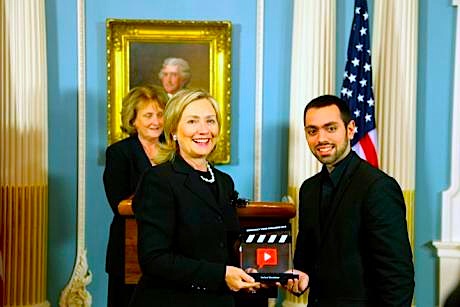By Jason Apuzzo. There was an interesting article recently in The New York Times about a brand new film called The Black Tulip, from first-time feature director Sonia Nassery Cole – an Afghan expatriate whose day job involves running the Afghanistan World Foundation, a charity focused on refugees and women’s rights. Ms. Cole apparently fled Afghanistan as a teenager in 1979 (after the Soviet invasion), and gained notoriety at that time by writing a letter to then-President Ronald Reagan – who subsequently invited her to the White House. President Reagan would subsequently put her in contact with the Afghanistan Relief Committee, providing her with a network of philanthropic contacts that would eventually help Cole direct The Black Tulip on location in Afghanistan, in the midst of the current war.

The Times article details the extraordinary hardships and complexities associated with getting this film made in contemporary Afghanistan – the most shocking of which reportedly involved militants locating the film’s original lead actress, Zarifa Jahon, and cutting off her feet. Jahon was subsequently replaced by Ms. Cole herself – although, it’s fair to mention, this incident has been disputed by Latif Ahmadi, head of the Afghan Film Organization – and Jahon herself currently resides in a remote part of the country, apparently unavailable for comment. In any case, Ms. Cole certainly had to deal with threats of violence, crew defections and shortness of funds, yet her film unspooled in Kabul yesterday – with a possible appearance at Sundance ahead. Afghanistan has apparently already submitted the picture as its entry for best foreign film at the next Academy Awards.
Check out the trailer for the film above. WARNING: THE TRAILER ABOVE CONTAINS MAJOR SPOILERS.
We look forward to getting a look at the film when it inevitably arrives in the States in the months to come, and we otherwise wish the irrepressible Ms. Cole the best with her film.
Posted on September 24th, 2010 at 10:22am.



